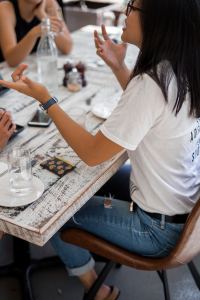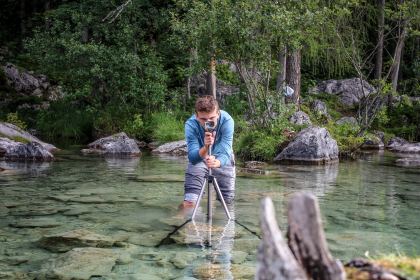During the school years, students are placed in an environment of continuous discovery, either at classrooms or at home. However, it is wrong to assume that it is only in these two environments – familiar and educational – that students learn. The discoveries and putting into practice something that was only known in theory can and should be present in educational trips and trips promoted by educational institutions, from kindergarten to high school.
These moments are not just fun-driven experiences, but also valuable opportunities to promote learning skills beyond the school walls! By allowing children and young adults to imagine, discover new knowledge and actually experiment changes the way in which students are able to connect with their environment.
This extension of the classroom in different places and cultural contexts is excellent for further stimulating the collective spirit and collaboration between students and educators. Educational trips generate high expectations in students and encourage them to keep a critical eye on what they are experiencing.
But how can you make sure a trip will bring a positive impact?
It’s all about Activity Planning.
 Educational trips have to be planed according to the objectives to be developed at each school level or with an overall goal. It is often an interdisciplinary work that integrates various areas of knowledge to provide students with broader learning, allowing them to make connections between subjects that seem to have no connection at all.
Educational trips have to be planed according to the objectives to be developed at each school level or with an overall goal. It is often an interdisciplinary work that integrates various areas of knowledge to provide students with broader learning, allowing them to make connections between subjects that seem to have no connection at all.
One skill that can be developed in a very fast pace and with lasting effects but might not be as obvious is: Public Speaking.
The first day of school in a new school, the group dynamics for a new job, the presentation of a project to a large audience… If it is hard to deal with shyness in everyday situations, face it in an experience abroad can be even more challenging. But during a cultural exploration trip all is new everywhere: new colleagues on the group trip, new formalities, new habits and a new routine. it is precisely in situations like these that shyness usually manifests itself most strongly.
According to several experts in interpersonal communications, self-consciousness often occurs in early adolescence. The degree to which it manifests may vary from case to case and it is totally normal to feel insecure when facing new situations. Ranging from person to person, we have everything from minor anxiety (palpitations, sweating and tremors) to stronger physical sensations such as hives, sudden drops of pressure and fainting.
Still according to studies published by specialists at ‘Psychology Today’, the opportunity to travel and have daily interactions with different people and cultural settings can be very beneficial for those who want to overcome shyness. Cultural exploration is an opportunity for a young person to get out of their comfort zone and into what is called the ‘confrontation zone’. These confrontations are necessary to gain self-confidence and security to deal with all common everyday situations occur. In addition, t greatly favors public speaking skills and the development of a better expression process.
Of course, this process does not happen overnight. Several factors can contribute to overcoming shyness during a trip and it all goes back to activity planning. Students state that they return home more secure and independent when they have guided opportunities to interact with locals.
A good example is our Silk Road trip where we coach students to perform interviews. Students are divided into groups of 4-5 people for specific topics: Culture, Religion and History of Trading. Students visit the local people, interview them and finish group tasks by overcoming language barriers. This guided activity helps them surpass their fear of talking to strangers and boosts their confidence to perform public speaking activities in different settings.

Learning in such a fast changing world is always challenging. Being able to provide well-structured and yet challenging activities can be the key for success!








